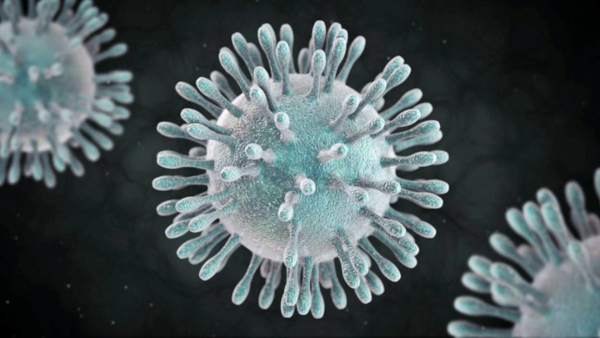NEW DELHI: As a preventive measure against coronavirus, IIT and AIIMS alumni Debayan Saha and Shashi Ranjan have developed a device called ‘Airlens Minus Corona’ that will travel on streets to sterilise the city. It will go to hospitals, bus stops, railway stations, shopping malls and other public places to sterilise the surfaces which may spread the coronavirus.
A medical cure for the deadly viral infection, which has left a trail of deaths across countries and affected tens of thousands, still remains a distant reality. But alumni from two premier institutes in India – the Indian Institute of Technology, Kharagpur (IIT-KGP) in West Bengal and All India Institute of Medical Sciences (AIIMS), New Delhi – have developed a device called “Airlens Minus Corona” which could deactivate the life of the coronavirus using charged or ionised water droplets.
“Airlens Minus Corona is basically an electrostatic water spray (EWS) technology. We induce charge on water droplets which in turn kill viruses by oxidation reaction. This technology has been recently developed seeing the emergency situation”, Dr Shashi Ranjan, who specialises in biomedical sciences with nanotechnology and studied at institutes like the AIIMS and US-based Stanford University, told Sputnik. Ranjan along with Debayan Sahah are co-founders of PerSapien Innovation, the company responsible for the Airlens Minus Corona device.
According to Ranjan, the formative technology on which the new device is based is called “Minus 2.5” and was first developed to kill pollution particles in the air. The “Minus 2.5” technology was tested in labs certified by the Delhi-based National Accreditation Board for Certification Bodies (NABCB).
“We are already working with the West Bengal government for deployment of the sanitising device in the states. The technology has also been recognised by the New Delhi-based Technology Development Board (TDB) under the federal Ministry of Science and Technology. The federal government is now seeking proposals to use the device for large scale sanitisation/sterilisation”, Ranjan added.
The device, which is being manufactured in Kolkata city’s Electro Plaza Project, could be used to sterilise hospitals, bus stops, railway stations, shopping malls, and other public places.
This technique can potentially sterilise the entire city, they said. There are several ways by which viruses can be inactivated – alcohol (such as ethanol) is one of them and alcohol-based hand sanitisers are useful for individuals or for sanitising surfaces on a smaller scale but insufficient in such an emergency. With a solution naming this technology as Airlens Minus Corona (-Corona), it clears up the coronavirus using the electrical energy of corona – ‘Fighting Corona With Corona’.
Earlier, the science behind EWS was proven to be killing microbes by Professor Philip Demokritou from Harvard University.
Previous inventions by the two
Earlier, the duo of Debayan Saha and Shashi Ranjan had invented devices like PM Minus 2.5 to help curb vehicular pollution. Saha, claimed that one car fitted with the device would neutralise pollution emitted from 10 cars.
Image Courtesy: Caracas Chronicles
You may also like
-
New Heat-Based Approach To Cancer Treatment Can Reduce Chemotherapy Doses
-
Scientists Take A Major Step Towards Unification Of Classical & Quantum Gravity
-
India Graphene Engineering and Innovation Centre (IGEIC) Under the Vision of Viksit Bharat@2047 Launched
-
New High-Performance Gas Sensor can Monitor Low Level Nitrogen Oxides Pollution
-
Antidepressant Drug can be Repurposed for Treating Breast Cancer
